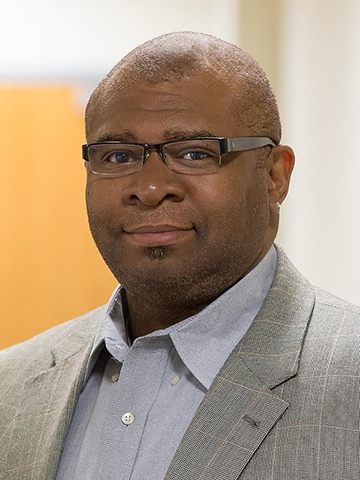Together with Missouri S&T, Saint Louis University Researchers Use Artificial Intelligence to Improve Kidney Transplant Process
Bridjes O'Neil
Communications Specialist
bridjes.oneil@slu.edu
314-282-5007
Reserved for members of the media.
ST. LOUIS, MO — With a new grant that brings together engineering expertise from Missouri S&T and medical expertise from Saint Louis University’s School of Medicine, researchers are investigating how artificial intelligence (AI) can support matchmaking between donated kidneys and transplant centers to help more patients in need.
Thanks to a $1.8 million grant from the National Science Foundation (NSF) to lead site Missouri S&T, experts in AI and organ transplantation will work to ensure that more kidneys are able to be used by patients who urgently need them.
The project is being led by Casey Canfield, Ph.D., assistant professor of engineering management and systems engineering at Missouri S&T, and the research is being conducted in partnership with the United Network for Organ Sharing and SSM Health Saint Louis University Hospital, which has a transplant center.
Mark Schnitzler, Ph.D., professor of surgery at SLU’s School of Medicine, says using AI tools to facilitate organ utilization is new. Currently, the work processes are very human-intensive.
“The big objective is to facilitate increased utilization of organs,” Schnitzler said. “Many organs from deceased donors go unused for a variety of reasons. We want to use more of them. For patients, that would reduce the shortage of organs, increasing overall life expectancy and quality of life of people who need them.

Schnitzler will join SLU colleagues Henry Randall, M.D., professor of surgery, and Krista Lentine, M.D., Ph.D., associate division director of nephrology and medical director of living donation at SSM Health Saint Louis University Hospital, and Jason Eberl, Ph.D., professor and director of the Albert Gnaegi Center for Health Care Ethics, to provide technical knowledge concerning data, clinical, and ethical aspects of organ allocation and transplantation.
Randall says the tool will help surgeons and Organ Procurement Organizations (OPOs) make data-driven decisions on organ acceptance.
“Greater incorporation of decision support tools like the one we are developing will help health care providers become more efficient in our workflows and daily processes,” Randall said, who also serves as executive director at SLUCare Transplant Center and abdominal transplant division chief at SSM Health Saint Louis University Hospital. “Also, we are helping to define the characteristics of the algorithms used.”

Lentine thanks collaborator Mid-America Transplant, a local organ procurement organization. In particular, she acknowledges Gary Marklin, M.D., chief medical officer, and Richard Rothweiler, director of organ utilization, who generously volunteered support.
Randall, Schnitzler, Eberl, and Lentine all believe this tool has the potential to change the future of medicine.
“Doctors, clinicians, and humans faced with identical information but at different times frequently make different choices, even though the situation isn’t different. An organ used on one day might be discarded on a different day even if it’s identical, even if the potential recipients are identical,” Schnitzler said. “Faced with the same data, AI tools will give the same answer. I don’t think it replaces the clinician, but it can give them a reference, a benchmark, and they can make decisions with that additional knowledge.”
About Saint Louis University
Founded in 1818, Saint Louis University is one of the nation’s oldest and most prestigious Catholic institutions. Rooted in Jesuit values and its pioneering history as the first university west of the Mississippi River, SLU offers more than 13,500 students a rigorous, transformative education of the whole person. At the core of the University’s diverse community of scholars is SLU’s service-focused mission, which challenges and prepares students to make the world a better, more just place.

















